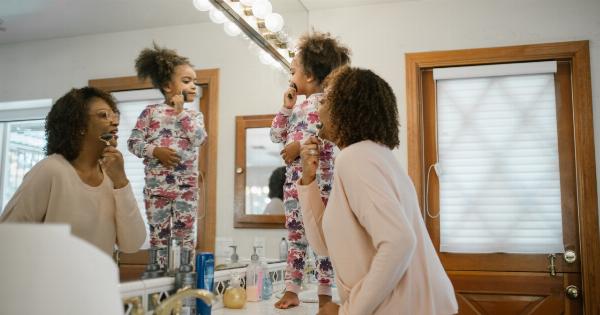Sexual development is a natural part of human growth and understanding, and as parents, it is essential to provide our children with accurate information. One aspect of sexual development that often raises questions and concerns is masturbation.
Many parents find it difficult to broach this topic with their children, unsure of how to address it in a healthy and informative way. In this article, we will explore the importance of discussing masturbation with your children and offer some guidance on how to navigate this topic.
The Importance of Talking About Masturbation
Masturbation is a normal and natural behavior that both children and adults engage in.
While it may seem uncomfortable to discuss, it is crucial to talk about masturbation with your children to promote a positive understanding of their bodies and their sexual development. By addressing masturbation openly and honestly, parents can help their children develop a healthy attitude towards their own sexuality. Here are some reasons why discussing masturbation is so important:.
1. Promoting Body Positivity
Talking about masturbation allows parents to teach their children about body positivity and self-acceptance. It helps children understand that their bodies are natural and normal, and that exploring their own bodies is a healthy part of growing up.
By promoting body positivity, parents can help their children develop a positive body image and a healthy attitude towards their own sexuality.
2. Correcting Misconceptions
Many children develop misconceptions about masturbation due to societal taboos and lack of accurate information. By discussing masturbation, parents can correct any misconceptions their children may have and provide them with factual information.
This helps children develop a realistic understanding of their own bodies and their sexual development.
3. Building Trust and Open Communication
Addressing masturbation with your children opens the door for open and honest communication about their sexual development.
It helps build a trusting relationship where children feel comfortable coming to their parents with questions or concerns about their bodies. Encouraging open communication from a young age establishes a strong foundation for discussing more complex and sensitive topics in the future.
When to Address Masturbation
Many parents wonder when is the right time to address masturbation with their children. The truth is, it’s never too early to start. Children naturally become aware of their bodies and may begin exploring at a young age.
As soon as your child demonstrates curiosity about their body or asks questions about sexuality, it is important to begin the conversation. Here are some guidelines to help you determine when to address masturbation:.
1. Follow Their Lead
Children will typically show signs of curiosity when they are ready to learn about their own bodies. They may ask questions, make comments, or exhibit certain behaviors.
This is a good indication that it is time to have an age-appropriate discussion about masturbation.
2. Age-Appropriate Conversations
When discussing masturbation, it is crucial to have age-appropriate conversations that match your child’s level of understanding.
Younger children may simply need to know that certain body parts are private and that it is okay to explore their own bodies in private. Older children may require more detailed information about sexual anatomy and the benefits and risks associated with masturbation.
3. Be Proactive
Even if your child hasn’t shown explicit curiosity, it is still beneficial to proactively address the topic of masturbation.
By initiating the conversation, you can provide them with accurate information and ensure they have a clear understanding of this aspect of their sexual development.
How to Address Masturbation
Discussing masturbation with your children can feel daunting, but with a few key principles in mind, it becomes a more manageable conversation. Here are some tips on how to address masturbation with your children:.
1. Create a Safe Space
Before initiating the conversation, create a safe and comfortable environment where your child feels at ease discussing sensitive topics.
Choose a quiet setting where you won’t be interrupted or overheard, and where your child feels relaxed and secure.
2. Use Proper Terminology
When discussing masturbation, it is essential to use proper anatomical terms. This promotes a clear understanding of the body and avoids confusion or embarrassment. Using euphemisms or nicknames for body parts may lead to misunderstandings or shame.
3. Keep the Conversation Age-Appropriate
Tailor the conversation to your child’s age and level of understanding. Younger children may require a simpler explanation, focusing on privacy and personal boundaries.
Older children may benefit from more detailed information about anatomy, bodily changes, and emotional aspects of masturbation. Listen to your child’s questions and provide the information they need without overwhelming them.
4. Normalize Masturbation
Emphasize that masturbation is a natural and normal behavior. Let your child know that it is okay to explore their bodies in private, but also highlight the importance of setting personal boundaries and ensuring they are comfortable.
Normalize the fact that most people masturbate at some point in their lives and that it is a healthy expression of their sexuality.
5. Address Misconceptions
If your child has already developed misconceptions about masturbation, gently correct them with factual information. For example, dispel the myth that masturbation can cause physical harm, lead to infertility, or signify a moral failure.
Provide accurate information about the benefits of masturbation, such as stress relief and self-exploration.
6. Encourage Questions and Openness
Let your child know that questions about their bodies and their sexual development are welcome. Encourage an open dialogue where they feel comfortable coming to you for answers or guidance. Be patient and understanding, and avoid judgment or shaming.
Conclusion
Addressing masturbation with your children is an important aspect of their sexual development.
By creating a safe space, using proper terminology, and keeping the conversation age-appropriate, parents can normalize masturbation and promote a positive attitude towards their children’s own sexuality. Remember, the goal is to establish open communication and trust so that your children feel comfortable discussing their bodies and their sexual experiences with you.





























